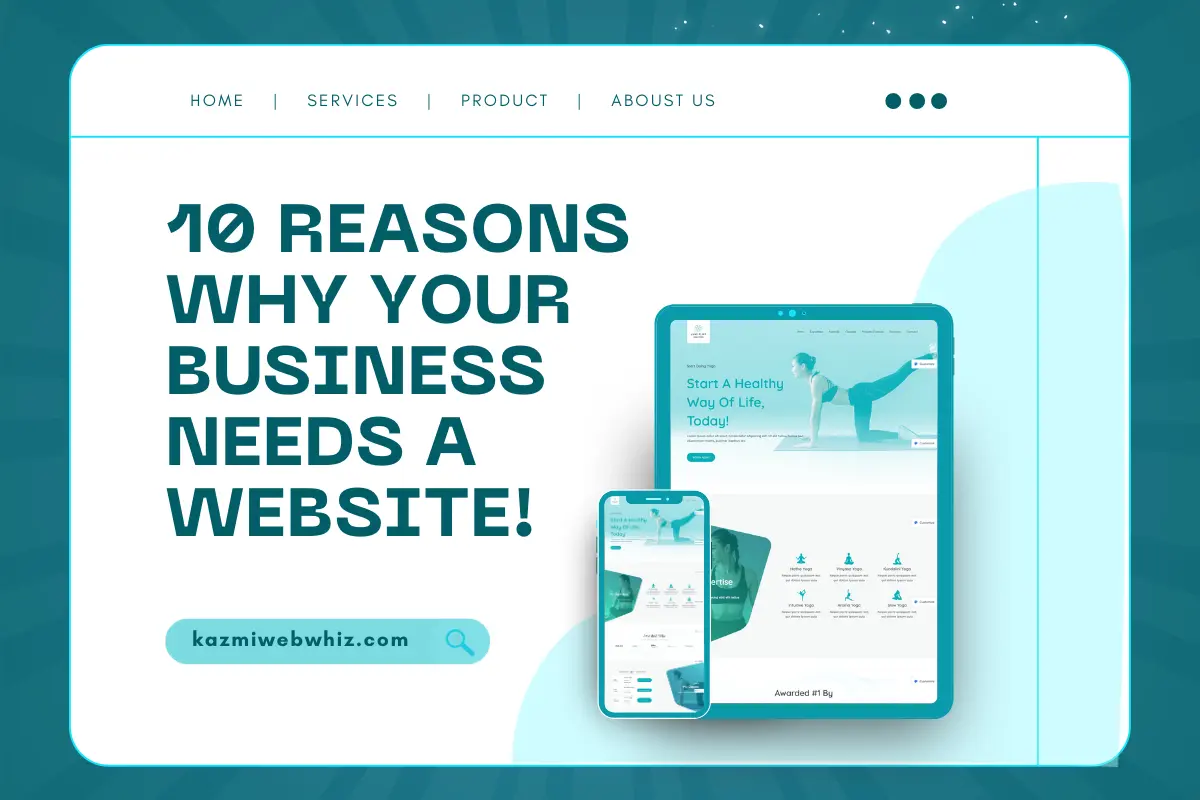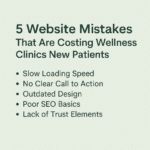In the rapidly evolving landscape of business, a strong online presence has become integral to success. A website serves as the digital face of your enterprise, offering a myriad of advantages that extend beyond mere visibility. This article explores ten compelling reasons why your business needs a website that is not just beneficial but imperative for the growth and sustainability of your business.
1. Global Reach and Accessibility:
In a world connected to the internet, your business’s physical location is no longer a limiting factor. A website provides unparalleled accessibility and global reach, breaking down geographical barriers.
- 24/7 Availability: Unlike traditional brick-and-mortar stores, a website is accessible 24/7, allowing potential customers to engage with your business at their convenience.
- Expanded Audience: With a website, your business can reach a global audience, enabling you to tap into new markets and demographics.
2. Credibility and Professionalism:
Establishing trust with potential customers is crucial for any business. A well-designed website adds a layer of credibility and professionalism to your brand.
- Virtual Storefront: Your website serves as a virtual storefront, creating a professional and trustworthy first impression for visitors.
- Testimonials and Portfolio: Showcase customer testimonials and your business portfolio to reinforce your credibility and expertise in the industry.
3. Marketing and Branding Opportunities:
A website acts as a centralized hub for your digital marketing efforts, providing numerous opportunities to enhance your brand’s visibility and engage with your target audience.
- Content Marketing: Use your website to create and share valuable content, positioning your business as an authority in your niche.
- Social Media Integration: Seamlessly integrate your social media channels with your website to amplify your online presence and reach a broader audience.
4. Customer Engagement and Interaction:
Beyond being a static online presence, a website facilitates direct communication and engagement with your audience.
- Live Chat and Contact Forms: Implement live chat features and contact forms to encourage real-time interaction with potential customers.
- Interactive Content: Engage visitors with interactive elements like quizzes, surveys, or product demos, fostering a more personalized experience.
5. Cost-Effective Marketing:
For businesses with limited marketing budgets, a website offers a cost-effective avenue for promoting products and services.
- Targeted Advertising: Utilize online advertising tools to target specific demographics, ensuring your marketing efforts are directed toward the most relevant audience.
- Analytics for ROI: Leverage website analytics to measure the effectiveness of your marketing campaigns, allowing you to refine strategies for optimal return on investment.
6. Enhanced Customer Support:
A website can improve customer support by providing easily accessible information and streamlined communication channels.
- FAQs and Resources: Host an extensive FAQ section and informative resources on your website, offering instant answers to common queries.
- Ticket Systems: Implement support ticket systems to manage and resolve customer issues efficiently, enhancing overall satisfaction.
7. Data Collection and Analysis:
Harnessing the power of data is crucial for making informed business decisions. A website provides valuable insights into customer behavior and preferences.
- User Analytics: Analyze user behavior on your website to understand customer preferences, allowing you to tailor your offerings accordingly.
- Informed Decision-Making: Use data-driven insights to make informed business decisions, ensuring your strategies align with the evolving needs of your target audience.
8. E-commerce Opportunities:
For businesses selling products or services, integrating e-commerce functionalities on your website opens up a world of possibilities.
- Online Sales: A website with e-commerce capabilities allows customers to make purchases directly, expanding your revenue streams beyond physical locations.
- Secure Transactions: Implement secure payment gateways to instill confidence in customers, ensuring a seamless and safe online shopping experience.
9. Mobile Responsiveness and Adaptation:
As mobile usage continues to soar, ensuring your business is accessible on various devices is paramount for success in the digital age.
- Mobile-Responsive Design: Optimize your website for mobile devices, providing a user-friendly experience for customers accessing your site on smartphones and tablets.
- App Integration: Explore the integration of your website with mobile apps, further enhancing user engagement and accessibility.
10. Competitive Edge and Adaptability:
Staying ahead of the competition requires adaptability and a keen understanding of market dynamics. A website provides the flexibility needed to navigate a constantly changing business landscape.
- Strategic Differentiation: A well-maintained website positions your business as forward-thinking and technologically adept, setting you apart from competitors.
- Agile Business Evolution: Whether through regular updates, innovative features, or adapting to emerging trends, a website allows your business to evolve and stay relevant in a dynamic market.
Conclusion: Why Your Business Needs a Website
In conclusion, the decision to invest in a website is not merely a technological choice but a strategic move that can propel your business to new heights. From global reach and credibility to cost-effective marketing and enhanced customer support, a well-crafted website is a fundamental tool in navigating the digital landscape and ensuring sustained success for your business.























